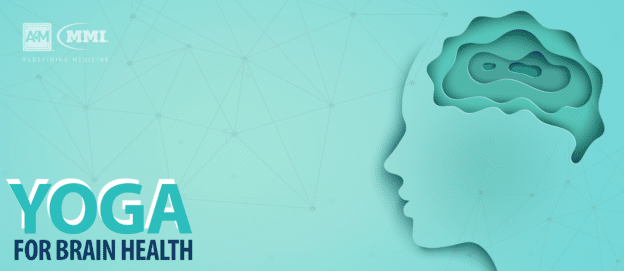Today, yoga is the most popular form of complementary therapy practiced by over 13 million adults, with 58% of adults citing maintenance of health and well-being as their reason for practice per data reported by the National Center for Complementary and Integrative Health (NCCIH).
Recently, yoga has gained increased attention in the scientific community as well, as a research area of interest among exercise neuroscientists due to its promising potential therapeutic benefits with potential to combat widespread increases in the prevalence of age-related neurodegenerative diseases. Few studies have investigated the benefits of yoga on brain health yet recent research from the University of Illinois at Urbana-Champaign aims to analyze current literature related to yoga practice and its documented positive effects on brain structure and function.
Yoga and the Brain
The team of researchers analyzed 11 studies of the relationships between yoga and brain health including the impact of yoga practice on brain structures, function, and cerebral blood flow. Of those, 5 trials engaged participants with no prior yoga experience in one or more yoga sessions per week over a period of 10 to 24 weeks to compare brain health before and after the intervention. Meanwhile, the remaining studies measured differences in brain health between participants who regularly practiced yoga and those who did not.
To determine variations in brain structure and health, each study utilized brain-imaging technologies including MRI, functional MRI, or single-photon emission computerized tomography to analyze the impact of Hatha yoga practice – which incorporates body movements, meditation, and breathing exercises.
Positive Neuroprotective Effects
Overall, researchers found that the studies reported a beneficial effect of yoga practice on both the structure and functioning of the hippocampus, amygdala, prefrontal cortex, cingulate cortex, and brain networks. As many of these regions are known to be related to age-related atrophy, the early evidence is promising and implicates that regular yoga practice could work to mitigate age-related and neurodegenerative diseases.
“For example, we see increases in the volume of the hippocampus with yoga practice,” lead author Neha Gothe from the University of Illinois said. “Many studies looking at the brain effects of aerobic exercise have shown a similar increase in hippocampus size over time.”
In addition, the review of the studies found that brain changes related to yoga practice were linked to improved cognitive performance and measures of emotional regulation.
Changes in Brain Structure
According to Gothe and her colleague Jessica Damoiseaux psychology professor at Wayne State University, many of the studies were exploratory and not conclusive. Despite this, the researchers suggest their findings underline important brain changes associated with regular yoga practice, including amygdala growth which may be directly related to improved emotional regulation in yoga practitioners.
“The prefrontal cortex, cingulate cortex and brain networks such as the default mode network also tend to be larger or more efficient in those who regularly practice yoga,” Damoiseaux explains. “Like the amygdala, the cingulate cortex is part of the limbic system, a circuit of structures that plays a key role in emotional regulation, learning, and memory.”
Regular yoga practice may help improve the cortisol stress response; researchers found that participants who practiced yoga for eight weeks had an attenuated cortisol response which also contributed to improved testing performance in cases of decision-making, task-switching, and attention span. Overall, researchers believe that the positive implications of yoga on brain structures and emotional regulation improve total brain functioning and thus, may have neuroprotective effects.
Not only does a regular yoga practice have well-documented physical health benefits, but it appears to also promote healthy brain function. However, researchers caution that more research is needed in this field to uncover the mechanisms underlying the evident brain changes, recommending large intervention studies that engage participants in yoga practice for long periods of time and allow for comparisons with other forms of exercise.
“The science is pointing to yoga being beneficial for healthy brain function, but we need more rigorous and well-controlled intervention studies to confirm these initial findings,” Damoiseaux concludes.




